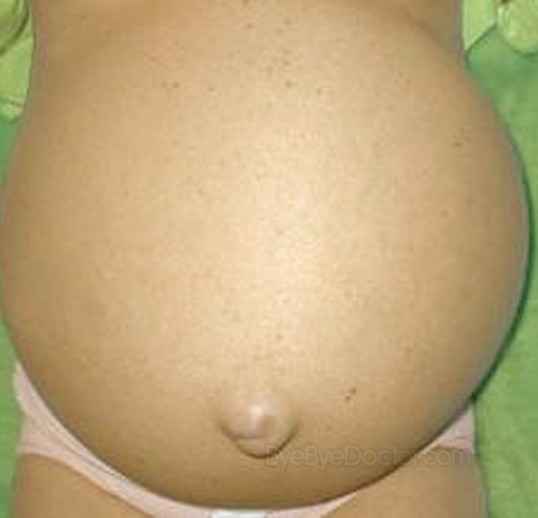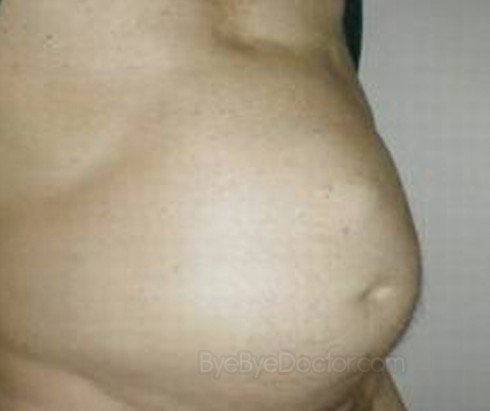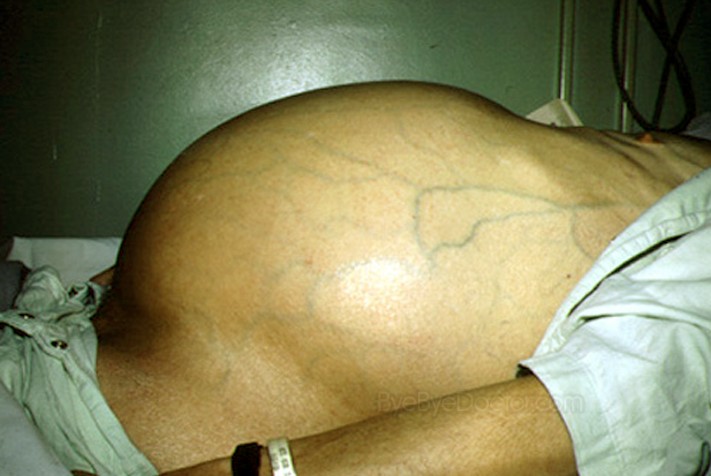What is Ascites?
Ascites is the accumulation of fluid in the peritoneal cavity (space that separates the organs in abdominal cavity from the abdominal wall). Ascites is a complicated result from an underlying condition such as liver disease, kidney disease and cancer. This is an unwanted sign for patients who have chronic conditions or liver disease.
Diagnosis of ascites can be as simple as a physical examination, but quite undetectable in the early stage. Inspection is a classic physical assessment and can be more justified with palpation and auscultation of fluid wave. But with the obvious change in size and gross distention, the conclusion of ascites is given. Abdominal analysis of the fluid is another action in order to diagnose it, but it has become a concern to many for its grave harm that it may provide to the patient. We have to consider that infection may be contributed. Accidental puncture to the neighboring organs is a risk too from this procedure. But it is essential in the differential diagnosis of ascites. CT scan is a useful way in the assessment of ascites. It can detect small amounts of ascites and other problems. A laparoscopy can determine and directly visualize the peritoneum.
Ascites Symptoms
The more fluid that are accumulating the peritoneal cavity, the more symptoms are manifested. There would be abdominal discomfort, pain, and shortness of breath. As the ascites increase in size, the greater pressure it exerts on the diaphragm. The rapid increase of fluid makes it proportionate to the increase in the patient’s weight. These are the concern of most patients with ascites. Sometimes the symptoms, if not treated, would lead to the death of the patient like respiratory and heart failure.
Ascites Causes
A liver disease has been always linked to ascites formation. But there are other conditions that can properly present its mechanism in causing ascites:
Cirrhosis
Cirrhosis – from chronic alcoholism is the most common cause of ascites. Known as the scarring of the liver, leaving a scar tissue that can lead to high blood pressure and even kidney failure. Kidney failure means there would be fluid retention. Salt and water are withheld in the body when there is kidney failure. Most likely the fluid may accumulate areas that are free, such as the abdominal cavity.
Liver cancer
Liver can present itself to another condition such as cirrhosis and may complicate to ascites. Ascites can suggest that the patient may be suffering from liver cancer if no other precipitating cause can be identified.
Hepatitis
hepatitis can result in liver failure. Once the function of the liver is depleted, it could lead to other serious conditions such as cirrhosis, portal hypertension and even cancer.
Congestive heart failure, portal hypertension
since there is an increase in pressure, the tendency of damaging the portal vein is high. Blood flow restriction increases because of the continuous pressure in the liver causing leaks to the abdomen.
http://www.Symptoms-Causes-treatment.blogspot.com detect diseases at an early stage symptoms, and find out the causes and treatments best suited.
Nephrotic syndrome
This condition is characterized by the depleting levels of albumin in the blood. Albumin in blood is essential in the fluid exchange in the body (osmotic pressure). Once there is alteration in the albumin levels, there would be no pulling pressure in the blood vessel to seep out the excess fluid from the peritoneal cavity.
Ovarian cancer
A swollen abdomen is a common complication of ovarian cancer. Ascites in ovarian cancer has raised a lot of questions from the sufferers. But it is explained that there is protein content abnormalities in the blood. Doctors say that presence of cancerous cells may be seeping into the abdomen to accumulate. This is mostly manifested by cancer patients who are in the advanced stage.
Ascites Treatment
Ascites is the form of complication from a condition; if possible, the underlying disease should be treated in order to get rid of this. The use of diuretics (assists in the secretion of urine) has been a widely common medical intervention for patients with ascites. This will remove the excess sodium along with water. But close monitoring of the patient’s blood electrolytes is a protocol. Doctors would also order a strict sodium diet. If patients are in the hospital care, they’re food is monitored by dieticians or if the patient is at home care, they are advised to consult a dietician for proper food preparation.
In some cases, where the fluid accumulation is uncontrollable, paracentesis is done. This is a delicate medical intervention because it is the removal of fluid excess via a needle. A lot of risks and complications may arise from this procedure. In monitoring the patient’s progress, weighing the patient is essential. Measuring the abdominal girth in a daily basis is also a good way in checking patient’s status.
The very last resort for treating ascites would be transplantation. Surgery itself has a lot of complications, especially now that it involves liver transplant. This may be the last alternative to have a functional organ. Risks are involved in this procedure; one of it would be organ rejection. But a lot of factors are being sought out before doing such intervention.
Ascites Diet
The restriction of salt intake has always been a corresponding treatment for ascites. This has been quite a help in the reduction of excess fluid in the body. Providing a healthy diet such as eating fruits and vegetables that are rich in minerals and vitamins are quite useful in the recovery process. A high-protein diet is assistive in the tissue repair of the client. When the client is undergoing paracentesis, mostly the protein content of the body is lost during the procedure. Herbal supplements such as dandelion, sambong/sage and garlic are a recognized help to reducing symptoms of ascites. Dandelion and sage are good alternatives for diuretics, given to patients of those with ascites and hypertension. Garlic is also an antihypertensive plant that is quite famous to Asian countries. Given these plants as an additional remedy to health, it is advisable to include these in the patient’s diet.
Patients with ascites should avoid foods rich in fat and alcohol consumption must be eliminated in the lifestyle. These products can only worsen the case of the patient, since he/she is already experiencing digestion problems.
Ascites Pictures


